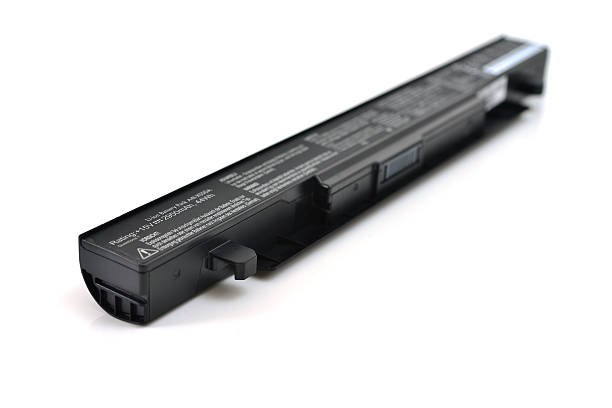Evolution of Batteries: From Memory to Intelligence
Once upon a time, laptop batteries were less sophisticated. They suffered from a ‘memory effect,’ which reduced their capacity if not fully discharged before recharging. However, modern laptops are equipped with lithium-ion batteries that are devoid of such issues. These smart batteries can be charged as needed without the fear of capacity loss. They are completely safe, and you should have less worry about them.
In the dynamic world of technology, lithium-ion batteries have become the cornerstone of portable electronics, including laptops. As we push towards a future where laptops are increasingly used as stationary workstations, remaining tethered to power outlets, it’s crucial to understand how this usage pattern impacts the evolving lithium-ion battery technology.
Today’s lithium-ion batteries are engineered to withstand the demands of frequent charging cycles and prolonged connection to power sources. Advances in battery management systems have led to the development of sophisticated software that protects the battery from potential damage caused by constant charging. These systems regulate the charging process, ensuring that the battery is maintained at optimal levels without overcharging.
Despite these advancements, lithium-ion batteries are not immune to the stresses of being always plugged in. Two primary concerns arise: high voltage and heat. Lithium batteries can suffer from being at a constantly high state of charge, which may lead to increased voltage stress. Additionally, heat generated from the laptop, compounded by the heat from charging, can accelerate battery degradation.
Another misconception is that regularly using the battery keeps it in good health.
I don't know the scientist or the inventor that formulated that theory. But in reality, battery longevity is determined by ‘charge cycles,’ which count full discharges and recharges. Excessive reliance on battery power accelerates wear and reduces its overall lifespan. Thus, it’s perfectly fine to use your laptop while plugged in.
In the digital age, laptops have become an extension of our personal and professional lives. With the convenience of portability, one question that often surfaces is whether it’s harmful to keep laptops plugged in at all times. Let us explore the misconceptions surrounding this topic and shed light on the truth.
The Old Belief: Overcharging Concerns

The myth that leaving a laptop plugged in continuously could lead to overcharging and battery damage stems from older battery technologies. In the past, nickel-cadmium batteries were prone to a memory effect, which could reduce their lifespan if they weren’t fully discharged before recharging.
Some advocate for letting the laptop battery drain completely occasionally. This practice is unnecessary and even detrimental for modern batteries. It’s advisable to recharge the battery before it drops too low to avoid undue strain. I know this is weird to some of you because you also fall victim to that practice. The strain in this case is now in the tech research organizations to look into it in detail on what causes the strain.
Modern Laptops: Designed for Convenience
Today’s laptops, however, are equipped with lithium-ion or lithium-polymer batteries, which are much more resilient. These modern batteries have intelligent charging circuits that prevent overcharging by stopping the charge once 100% capacity is reached. The power then bypasses the battery and directly powers the laptop, mitigating the risk of overcharging. This really saves and prevent overheating too.
Voltage and Heat: The Real Culprits? Maybe yes but let us dive in
Despite the advancements in technology, two factors can still affect battery health: high voltage and excessive heat. When a battery is kept at full charge and high voltage, it can experience increased stress and potential degradation over time. Heat is another enemy of battery longevity. Laptops that are poorly ventilated or used in hot environments can suffer from reduced battery life due to thermal stress.
Best Practices for Battery Longevity
To maximize the lifespan of your laptop’s battery, consider the following tips:
1. Unplug Periodically: Aim to keep the battery charge between 70% and 80%. Unplug the laptop occasionally to allow the battery to discharge slightly before plugging it back in.
2. Manage Power Consumption: Close unnecessary apps and adjust battery settings to reduce power usage. You can check using your edge browser essentials and believe me on how it will improve your devices speed too
3. Keep It Cool: Ensure proper ventilation for your laptop to avoid overheating. You can actually buy it from the supermarket or any device selling shop.
The Future of Laptop Battery Health
Research continues to advance in the field of battery technology. Innovations such as solid-state batteries promise to offer greater longevity and safety. Until such advancements become mainstream, it’s essential to follow the best practices mentioned above to ensure the health of your laptop’s battery.
In conclusion, while modern laptops are designed to prevent damage from continuous charging, it’s still crucial to be mindful of the potential long-term effects. By understanding the technology behind laptop batteries and adhering to recommended usage patterns, we can prolong the life of our devices and maintain their performance.
In the ever-evolving landscape of technology, the humble battery is set to become a powerhouse of innovation, particularly in the realm of portable computing. Over the next five years, we can anticipate groundbreaking changes in laptop batteries that will not only redefine longevity and efficiency but also significantly impact our daily lives and the environment.
The introduction of solid-state batteries is poised to be a game changer in the industry. Unlike traditional batteries, solid-state batteries use a solid electrolyte, which can be made from ceramics or other non-flammable materials. This fundamental change offers several benefits:
1. Increased Energy Density: Solid-state batteries can store more energy in the same amount of space, potentially doubling the battery life of laptops.
2. Faster Charging Times: With improved ionic conductivity, these batteries can reduce charging times significantly, making it more convenient for users on the go.
3. Enhanced Safety: The non-flammable nature of solid electrolytes reduces the risk of fires, making laptops safer to use and charge.
AI-Optimized Charging and Management
Artificial intelligence (AI) is also set to improve how laptop batteries work. AI can learn how you use your laptop and adjust the charging to help the battery last longer. It can also manage the battery’s health, so it doesn’t wear out as quickly.
The Dawn of a New Era: Nuclear Batteries and the Future of Laptops

In the ever-evolving landscape of technology, the quest for more efficient and long-lasting power sources is perpetual. As we stand on the cusp of a significant breakthrough, the introduction of nuclear batteries promises to revolutionize the way we use laptops. This article delves into the implications of this groundbreaking technology and how it could transform the laptop world in the next five years.
Understanding Nuclear Batteries
Nuclear batteries, also known as atomic batteries, are not a novel concept. They have been utilized in various specialized applications, such as in space probes and pacemakers, where long-term, reliable energy sources are paramount. However, recent advancements suggest that these powerhouses could soon become compact and safe enough for consumer electronics, including laptops.
The principle behind nuclear batteries is the conversion of energy released by the decay of radioactive isotopes into electricity. This process can potentially provide power for decades without the need for recharging, addressing one of the most significant limitations of current laptop batteries – their lifespan and capacity.
The Game-Changing Potential
Imagine a laptop that you never have to charge, one that offers an uninterrupted power supply for years on end. This is the promise of nuclear batteries. With a lifespan that could outlast the device itself, these batteries could eliminate the need for frequent replacements and the associated environmental waste. Moreover, the consistent power output could lead to laptops with enhanced performance capabilities, as they would no longer be constrained by battery life.
The Impact on Design and Functionality
The integration of nuclear batteries into laptops could lead to a radical redesign of these devices. Without the need for large, heavy batteries, laptops could become thinner and lighter, enhancing their portability. Additionally, the space saved could be used for other innovative features or more robust hardware.
Safety and Regulation
One of the primary concerns with nuclear batteries is safety. The idea of carrying a radioactive power source may raise eyebrows. However, the isotopes used in these batteries are typically low-risk, and the amount of radioactive material is minuscule. Furthermore, advancements in containment and shielding technologies ensure that these batteries are safe for everyday use.
Regulatory bodies will play a crucial role in the adoption of nuclear batteries. Strict standards and guidelines will need to be established to govern the production, usage, and disposal of these batteries. Consumer confidence in the safety of nuclear batteries will be paramount for their widespread acceptance.
Big Changes Ahead
Imagine a laptop that never needs charging. It’s always ready to go, for years. That’s what nuclear batteries could do. They might even last longer than the laptops themselves. This would mean less waste and no more worrying about your battery dying at the wrong time.
Design and Features
With nuclear batteries, laptops could look different. They might be thinner and lighter since they won’t need big batteries anymore. This could make them easier to carry around. Plus, there might be room for new features or better parts inside.
These are Researched Guidelines to help users cope with Nuclear Batteries without undergoing any harm
1. Safety First: Always follow the manufacturer’s safety instructions and handling procedures to prevent exposure to radiation.
2. Proper Disposal: Dispose of nuclear batteries according to local regulations and guidelines, as they contain radioactive materials.
3. Maintenance: Regularly check the integrity of the battery’s containment to ensure there are no leaks or damage.
4. Usage: Use nuclear batteries for applications where long-term, uninterrupted power is essential, and other power sources are not feasible.
5. Education: Educate yourself and others who may come into contact with the nuclear battery about its proper use and safety measures.
6. Emergency Preparedness: Have a plan in place for emergencies, including potential exposure or containment breach.
7. Regulatory Compliance: Ensure compliance with all relevant regulations and standards set by nuclear energy authorities.
There need to be clear guidelines for making, using, and throwing away these batteries. People have to trust that nuclear batteries are safe before they’ll want to use them.
Now many of you readers never knew about these facts mentioned above, there are so many mysteries hiding behind technology. It is left with you the individual to look further into the details of technology. I enquire you to love technology and look for more so that you won't fall a victim to what others are not doing right.
Conclusion
The fear of harming your laptop’s battery by keeping it plugged in is largely unfounded with modern devices. While it’s not necessary to constantly unplug your laptop, being mindful of voltage and heat can help maintain battery health. Embrace the convenience of your laptop without the worry but remember to give it a breather now and then for optimal performance.
By understanding the facts and taking simple precautions, we can enjoy the mobility of our laptops without compromising their battery life. So next time you are tethered to the power outlet, rest easy knowing that you are not causing undue harm to your device. And let's wait for the new era of technology with Nuclear Batteries!



